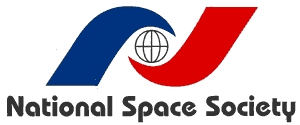Home > Press > National Space Society Issues Position on Protecting Earth From Cosmic Impacts
 |
Abstract:
On February 15, 2013, a meteor exploded over the Chelyabinsk region of Russia. The blast damaged over 7,000 buildings and almost 1,500 people suffered injuries requiring treatment. As we observe the anniversary of that event, it is important to understand its significance and specifically what it means for the United States. Millions of objects in space, including asteroids and comets, are in orbits around the Sun that cross Earth's orbit. When they approach Earth, they are referred to as Near-Earth Objects (NEOs). Some NEOs are large enough to cause significant damage if they impact the Earth. Many such objects have struck Earth in the past, inflicting damage ranging from trivial up to and including global catastrophe. While a future large strike with catastrophic consequences is certain, we do not know whether it will happen in 150 million years or fifteen months.
National Space Society Issues Position on Protecting Earth From Cosmic Impacts
Washington, DC | Posted on February 17th, 2014The Washington DC-based National Space Society (NSS) has been a consistent supporter of actions to defend our home planet from such events. In a position paper released today, the Society focuses attention on the near-term need and the opportunity to significantly improve our ability to detect and track collision threats to the Earth. While recognizing that this is a global problem, the paper focuses on recommended actions for the United States. Additionally, NSS urges all space faring nations to add an amount of at least one percent of their civilian space budget for developing defenses against these threats.
NSS believes that the immediate task before us is to find and track NEOs large enough to cause damage on Earth. To this end, current US ground-based searches should continue, including use of the Arecibo radio telescope. The Large Synoptic Survey Telescope should be fully funded and encouraged to vigorously pursue NEO detection. The B612 Foundation's Sentinel Project and the JPL NEOCam infra-red space telescope should be fully funded. The Society also feels that now is the time to more seriously address the detection of long period comets. Additional work should be done on NEO characterization and deflection research.
NSS Director and Space Settlement Advocacy Committee chair Al Globus summed up the situation: "We face an existential threat. We can develop the ability to remove it. There is little or no benefit to waiting. Let's do it."
####
About National Space Society
NSS is an independent, educational, membership, non-profit organization dedicated to the creation of a spacefaring civilization. NSS is widely acknowledged as the preeminent citizen's voice on space, with thousands of members and supporters, and over 50 chapters in the United States and around the world. The Society publishes Ad Astra magazine, an award-winning periodical chronicling the most important developments in space.
For more information, please click here
Contacts:
Lynne Zielinski
Phone: 202.429.1600
Copyright © National Space Society
If you have a comment, please Contact us.Issuers of news releases, not 7th Wave, Inc. or Nanotechnology Now, are solely responsible for the accuracy of the content.
| Related News Press |
News and information
![]() Simulating magnetization in a Heisenberg quantum spin chain April 5th, 2024
Simulating magnetization in a Heisenberg quantum spin chain April 5th, 2024
![]() NRL charters Navy’s quantum inertial navigation path to reduce drift April 5th, 2024
NRL charters Navy’s quantum inertial navigation path to reduce drift April 5th, 2024
![]() Discovery points path to flash-like memory for storing qubits: Rice find could hasten development of nonvolatile quantum memory April 5th, 2024
Discovery points path to flash-like memory for storing qubits: Rice find could hasten development of nonvolatile quantum memory April 5th, 2024
Govt.-Legislation/Regulation/Funding/Policy
![]() NRL charters Navy’s quantum inertial navigation path to reduce drift April 5th, 2024
NRL charters Navy’s quantum inertial navigation path to reduce drift April 5th, 2024
![]() Discovery points path to flash-like memory for storing qubits: Rice find could hasten development of nonvolatile quantum memory April 5th, 2024
Discovery points path to flash-like memory for storing qubits: Rice find could hasten development of nonvolatile quantum memory April 5th, 2024
![]() Chemical reactions can scramble quantum information as well as black holes April 5th, 2024
Chemical reactions can scramble quantum information as well as black holes April 5th, 2024
Announcements
![]() NRL charters Navy’s quantum inertial navigation path to reduce drift April 5th, 2024
NRL charters Navy’s quantum inertial navigation path to reduce drift April 5th, 2024
![]() Discovery points path to flash-like memory for storing qubits: Rice find could hasten development of nonvolatile quantum memory April 5th, 2024
Discovery points path to flash-like memory for storing qubits: Rice find could hasten development of nonvolatile quantum memory April 5th, 2024
Aerospace/Space
![]() Under pressure - space exploration in our time: Advancing space exploration through diverse collaborations and ethical policies February 16th, 2024
Under pressure - space exploration in our time: Advancing space exploration through diverse collaborations and ethical policies February 16th, 2024
![]() Bridging light and electrons January 12th, 2024
Bridging light and electrons January 12th, 2024
![]() Manufacturing advances bring material back in vogue January 20th, 2023
Manufacturing advances bring material back in vogue January 20th, 2023
|
|
||
|
|
||
| The latest news from around the world, FREE | ||
|
|
||
|
|
||
| Premium Products | ||
|
|
||
|
Only the news you want to read!
Learn More |
||
|
|
||
|
Full-service, expert consulting
Learn More |
||
|
|
||








